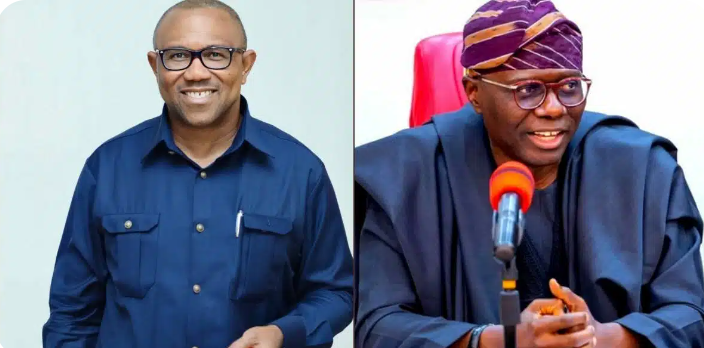
Delta State Assembly Turns All-APC as 22 Lawmakers Defect from PDP

In a dramatic political shift that has reshaped the legislative landscape of Delta State, the entire Delta State House of Assembly has become an All Progressives Congress (APC) stronghold after 22 lawmakers, including the Speaker, Rt. Hon. Emomotimi Guwor, defected from the People's Democratic Party (PDP). This unprecedented mass defection was announced on Tuesday as the House reconvened after the Easter break, signaling a complete transformation from a PDP-dominated to an all-APC Assembly.
With seven members already in the APC before the defection, the recent move now sees all 29 seats under the control of the ruling party. Speaker Guwor, addressing the Assembly, explained that the decision was made following extensive consultations with their constituents and political leaders. He cited Section 109 of the 1999 Constitution, which allows for such a political realignment, and pointed to the internal crisis within the PDP as the primary catalyst for the lawmakers’ decision. According to him, the PDP’s national and zonal leadership struggles have destabilized the party, leaving its members uncertain about its future direction.
The official defection took place on April 28 at the Government House and Cenotaph in Asaba, where the lawmakers were warmly received into the APC fold. During the ceremony, Speaker Guwor expressed gratitude to Governor Sheriff Oborevwori for his unwavering support throughout the transition process. Guwor also highlighted that aligning with the Federal Government, now led by the APC, would accelerate development initiatives in Delta State. This sentiment was echoed by several lawmakers who described the move as both strategic and beneficial for the people of the state.
Political analysts have described the development as a significant blow to the PDP in Delta State, historically a PDP stronghold. The move to the APC is seen by some as a calculated alignment with the ruling party at the federal level, aiming to secure more resources and political leverage for the state. The lawmakers stressed that the decision was not taken lightly but was driven by the desire to foster growth and development amid the prevailing political realities.
Reactions have been swift and varied across political circles. Supporters of the APC have celebrated the defections as a victory for the party’s influence in the South-South region. They believe it will enhance collaboration between the state and federal governments, thereby facilitating more infrastructural projects and social interventions. On the other hand, PDP loyalists have expressed disappointment, accusing the defectors of political opportunism and betraying the trust of their electorate.
In a statement released after the announcement, the PDP’s Delta State chapter expressed its dismay over the defection, calling it a betrayal of the mandate given to the lawmakers under the PDP platform. Party officials vowed to restructure and rebuild, emphasizing that they would not be deterred by the setback. They also noted that the party’s core supporters remain steadfast, and efforts are underway to address the leadership challenges that led to the mass exodus.
Meanwhile, the Speaker urged his colleagues to focus on completing all pending legislative assignments as the current session draws to a close. He reiterated the importance of maintaining legislative productivity despite the political shift, emphasizing that the ultimate goal remains the welfare of Delta’s citizens.
Residents of Delta State have expressed mixed feelings regarding the development. Some community leaders have voiced support for the move, arguing that being part of the ruling party at the federal level would benefit the state in terms of projects and political appointments. Others, however, are skeptical about whether the change will translate into tangible improvements in governance and social services.
Experts note that the defection underscores the fluidity of Nigeria’s political landscape, where loyalty can quickly shift in response to internal party conflicts and strategic political calculations. They argue that as the APC consolidates power in the Delta State Assembly, it will face the challenge of delivering on promises made to constituents who may still harbor reservations about the sudden political switch.
The development also raises questions about the future of opposition politics in Delta State, with the PDP now effectively sidelined in the legislative process. As the APC takes full control, observers will be watching closely to see how the new political configuration influences governance and whether it translates into the development gains touted by the defectors.
As the dust settles on this landmark political realignment, the focus shifts to how the APC-led Delta Assembly will navigate the remainder of the legislative calendar and how the people of Delta will respond to the change in political leadership. The coming months will be crucial in determining whether the defections will indeed bring the promised benefits or whether discontent will grow among those who feel left behind by the shift.
For now, the Delta State House of Assembly has entered a new chapter—one where the APC’s dominance is unchallenged and the PDP must regroup to remain politically relevant. Only time will tell if this bold move by the lawmakers will pay off politically and socially or if it will lead to unforeseen challenges for the state’s governance structure.


